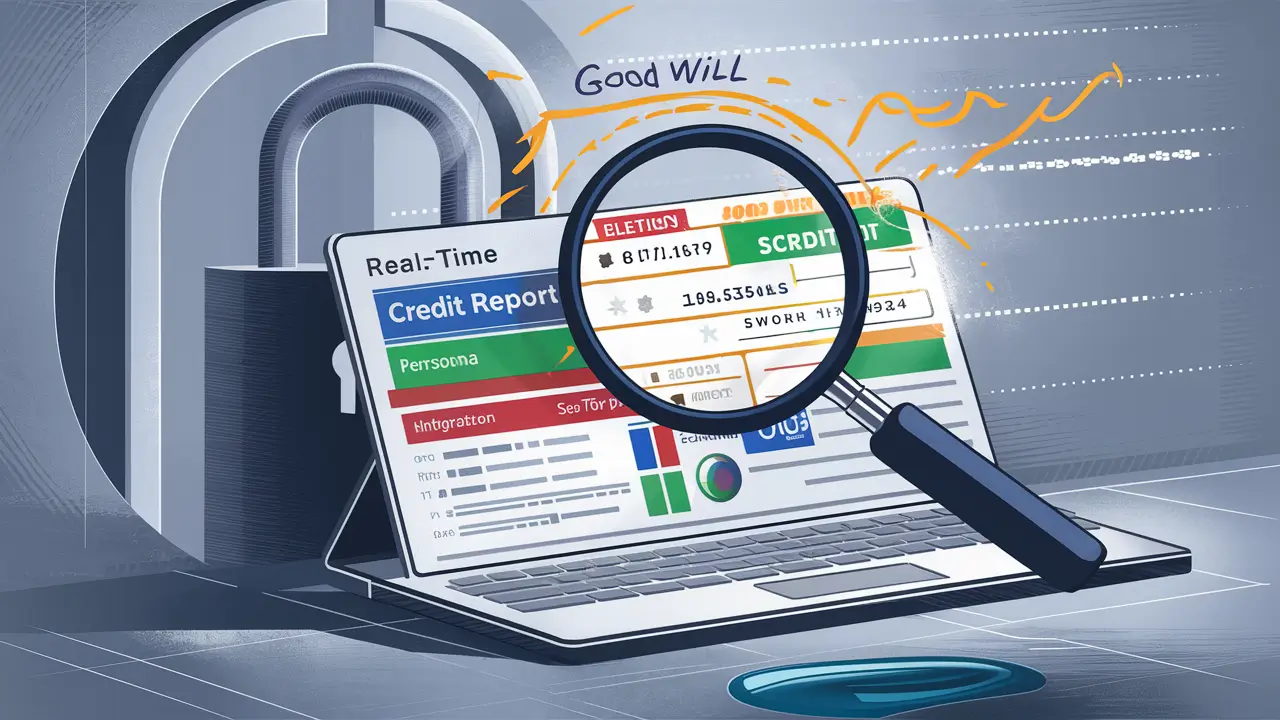-
Posted on: 26 Jul 2024

-
A credit report refers to an important document in the financial life of an individual. It is employed to assess the credit risks on loans and credit cards, mortgages, rentals, and occasionally jobs or insurance. Therefore, it is pertinent that all the information held in the credit reference file is correct and comprehensive. However, you can challenge and request that any inaccurate or old information that is not in dispute be deleted from your credit report.
What Are You Going To Remove
According to the FCRA, both credit reporting agencies and information providers are obligated in the process of correcting any wrong or incomplete data in your file. Here are some of the common credit report errors you may be able to get deleted: Here are some of the common credit report errors you may be able to get deleted:
- Subscribers unrelated to you (by fraud or misuse of your identity).
- Accounts closed as of the balance sheet date are still being included in the open accounts bucket.
- Other issues, for instance, maybe having the wrong account status, like having a paid account and displaying it as an unpaid account.
- Some accounts are excluded because of age; anything older than 7-10 years is normally not included.
- Fake accounts or similar information
- Such minor lies as false addresses, or fake employment records
- This follows the declaration of bankruptcy after 10 years.
- Civil lawsuits, tax levies, and criminal records after 7 years
Learn How to Get An Error Removed in Five Easy Steps
If you spot any incorrect or outdated information in your credit file, here are the steps to take in filing a dispute: If you spot any incorrect or outdated information in your credit file, here are the steps to take in filing a dispute:
- You can order the credit report from Equifax, Experian, and TransUnion by requesting it in writing. It is highly advisable to review all account information and personal data provided before submitting the form.
- If any of the listed items that appear on the reports are considered inaccurate or questionable, then they should be identified. Some of the most frequent complaints involve information that has someone else’s name similar to their own; paid collections still showing up as unpaid; or accounts that were believed to have been closed still showing as being open.
- You must dispute each credit bureau that has reported wrong information to the credit reporting companies. This can be done either through the Internet or by sending the forms through the mail. I suggest that you present any documents that may be useful in your case. In most cases, it is given 30 days to investigate if the disagreement is considered to be frivolous.
- It is mandatory to provide specifics of what information, why it is erroneous, the actual information that should be provided, and copies of any evidence in the written dispute. The stronger the proofs, if given, the higher the chances of the agency deciding in his favor.
- Contact a manager, if the problem is not solved. If something is still listed as incorrect with your report, then you can file another appeal or report the company to the Consumer Financial Protection Bureau.
Avoiding such blunders in the future starts with spending time to learn from past errors, what went wrong, and who was involved.
It is noteworthy, nonetheless, that you may easily revert to comparable errors even after taking all required measures to guarantee a clean credit record. These suggestions will allow you to maintain the correctness of your file going ahead: Here are some pointers to help your file remain accurate going forward:
- At least once a year, you should review your credit reports and examine all of them concurrently. Visit annualcreditreport. com to free request them.
- One should not provide personal information if one wants to avoid identity theft.
- Additionally advised that account statements should be checked at least once a month and any dubious credit card use should be reported to the credit card company.
- Apply for credit just once; make sure your applications only reflect your credit history. The credit reference service will therefore take great consideration for several hard queries that have temporarily reduced your score.
- Sign up for credit monitoring to make sure the credit bureaus get in touch should anything modify your credit records.
Being a regular consumer, it merely takes a few actions to correct any anomalies early on thus lessening any effect on your credit score. Including certain components will help both now and in the long run if one keeps sight of the eventual result.
Call now for expert credit repair services: (888) 803-7889
Read More:
How much income do you need to qualify for a $250000 mortgage?
How much can I borrow with a 780-credit score?
How much is a $300000 mortgage payment for 30 years?
How much can I afford for a house if I make 80000 a year?
What credit score is needed to buy a house with no money down?




